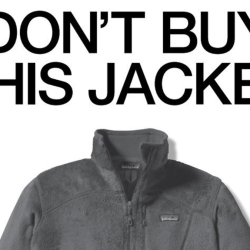Do brands know what consumers want? What will people say?
For an immigrant family like mine the second question above is just a household staple, like your morning coffee. Taking the weight of the world on your shoulders hinders choices made to pursue more disruptive dreams and aspirations. The potential backlash trumps the happiness that comes from making big moves. So imagine my surprise hearing ‘What will people say?’ in client Zoom meetings and face-to-face discussions. Welcome to the world of advertising. Truth be told, most of the ads we come across do not reflect who we are or what we’re going through, as people or consumers. Being culturally relevant requires boldness. And boldness is hard to embody when brands feel comfortable in their safe spaces. I mean, can we blame them? Cancel culture is still ever present. For better or worse, brands, sometimes, must be held accountable.
Take the latest Super Bowl ad, #GameTimeGlow, by Cetaphil. It made great use of the current Taylor Swift-Travis Kelce fiasco; showing a father and daughter bonding, but there was a catch. The idea has been allegedly stolen from a TikTok creator with no credit given. Jeez.
While some brands try to stay within boundaries, others are desperate to be part of the conversation and overdo when it comes to cultural relevance. Exhibit A (for the hundredth time) — Pepsi’s campaign featuring Kendall Jenner. So what’s the middle ground? Unfortunately, I have no one-size-fits-all solutions up my sleeve, it’s up to brands to define their middle ground by simply — wait for it — talking to their target audience. CRAZY? UNHEARD OF? All jokes aside, yes, it can be that simple. Maybe this is just the strategist in me talking, but I think you should give the people what they want. Look at last year’s Heinz x Absolut Vodka collaboration. At first glance it might seem completely random, but the pasta sauce that came out of this collaboration was a result of the viral vodka pasta recipe that had been doing the rounds on social media.
By staying relevant, brands can be ‘top of mind’ when it comes to consumers, thereby attaining a much-needed return on their investments. But this, then, turns into an endless loop of making sure we keep contributing to sales figures, whether we need the product/service or not. We live in a capitalistic world after all. Making this a little more subtle is easier said than done.
It’s time more businesses worked hand in hand with their customers to achieve their KPIs in a way that seems a little less capitalistic and a little more world-centric. For example, Dove’s #TurnYourBack campaign capitalised on the fact that women that use Dove are 16x more likely than other women to promote a brand online, when they have a positive relationship with that brand.
Whether big or small in size, brands have the ability to make a difference and it all starts with understanding the people that keep them going. So in the spirit of all things business and advertising, let me leave you with a quote from the world’s first billionaire John D. Rockefeller, ‘Don’t be afraid to give up the good, to go for the great.’
Featured image: Heinz x Absolut Vodka































